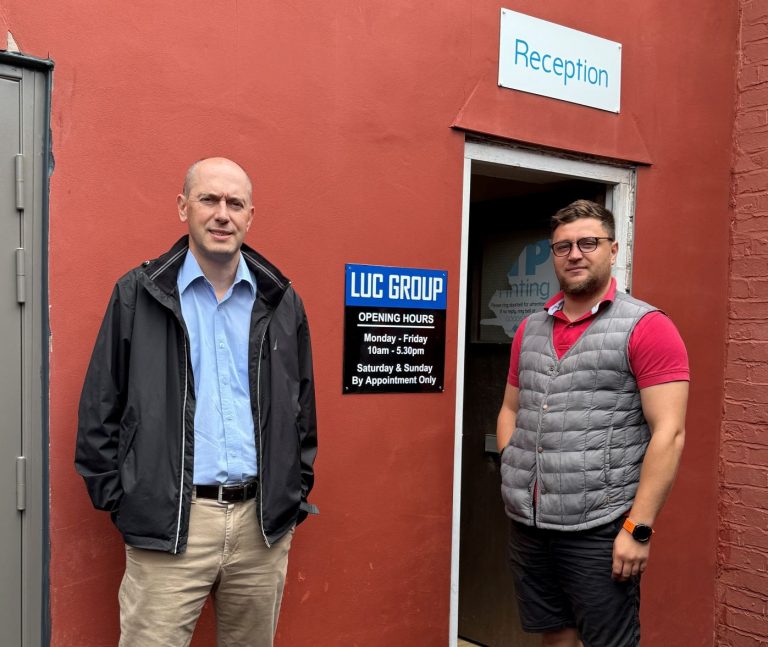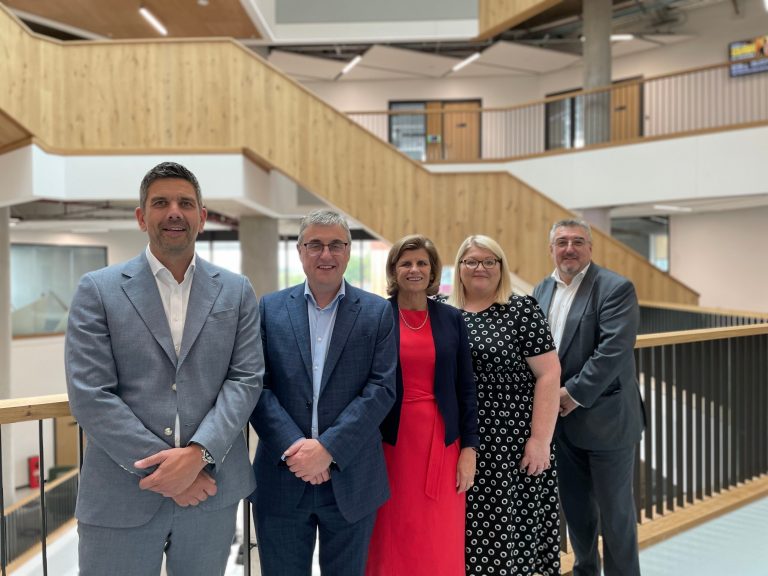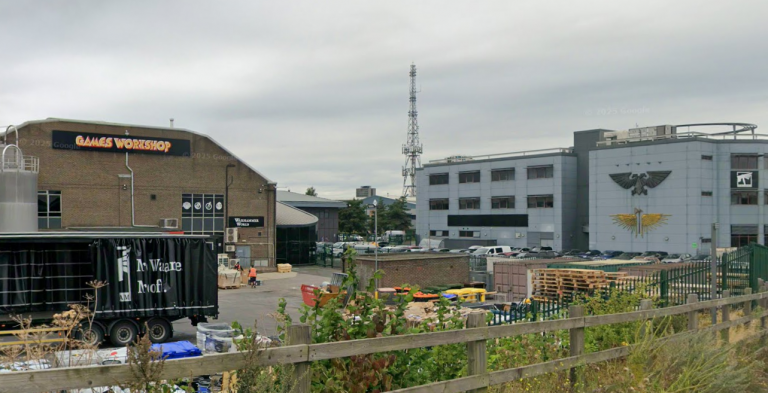£10.8bn funding deficit uncovered in East Midlands
Nottingham set for 200 new homes through Platform4 redevelopment
Nottingham is set to see a significant boost in housing with the development of 200 new homes on surplus railway land. As part of the government’s Platform4 initiative, this project will transform a brownfield site into a thriving residential area.
Platform4, a newly established property development company, is tasked with unlocking railway land across England and Wales for housing projects. In Nottingham, the development is expected to contribute to the creation of sustainable communities while addressing the region’s housing needs.
The redevelopment of this site is part of the government’s broader plan to build 40,000 homes across surplus railway land over the next decade. This project aligns with the government’s brownfield-first approach, ensuring that underused land is repurposed for much-needed housing.
By consolidating property development efforts under one entity, Platform4 aims to streamline processes and deliver developments more efficiently. The profits generated will be reinvested into the UK’s rail infrastructure, supporting long-term growth for both the housing and transport sectors.
Derby City Council reports underspend as it moves towards financial stability
Derby City Council has reported a forecast underspend of £1.318 million for the first quarter of the 2025/2026 financial year. This marks significant progress in the Council’s ongoing efforts to achieve long-term financial stability.
The underspend comes after the implementation of effective financial management and careful budget setting, despite the challenges facing local governments nationwide. The Council has also made notable investments in essential services, with approximately £40 million allocated for this financial year, while working to restore general reserves to £15.8 million. This will bring reserves to the highest level in several years, representing 4.54% of the revenue budget.
In addition, the Council is on track to meet its £9.861 million savings target for the 2025/26 year. The commitment to rebuilding reserves forms part of Derby’s broader strategy to create a more resilient financial position, ensuring the city is well-prepared for any future economic shocks.
Although positive, the report acknowledges ongoing pressures, particularly in adult social care and services for children with special educational needs. However, these costs are being offset by savings in other areas. The Council remains focused on maintaining responsible financial leadership to ensure continued service delivery and stability.
Looking ahead, Derby City Council is preparing for potential changes linked to Local Government Reorganisation across Derbyshire. The financial position will be further reviewed at the Cabinet meeting on 6 August.
Charnwood Forest to bid for prestigious international designation
“The Bricks Awards showcase the people and firms that are to thank for shaping how our urban spaces and architecture will be seen for future generations”
- Contractor of the Year
- Developer of the Year
- Architects of the Year
- Most Active Agent
- Deal of the Year
- Residential Development of the Year
- Sustainable Development of the Year
- Commercial Development of the Year
- Excellence in Design
- Responsible Business of the Year
- Overall Winner (this award cannot be entered, with the Overall Winner selected from those nominated for the occasion’s 10 other categories and receiving a grand prize of a year of marketing/publicity worth £20,000, with the opportunity to split or gift the marketing to a charity of your choice).
Nominations will close on Friday 15th August.
Tickets can now be booked for the East Midlands Bricks Awards 2025, click here to secure yours.
Connect with local decision makers over nibbles and complimentary drinks while applauding the exceptional companies and projects in our region.
New for this year, all entrants will also have the opportunity to be featured on our dedicated nominee showcase on the East Midlands Business Link website, providing space for marketing your achievements.The East Midlands Bricks Awards 2025
What: The East Midlands Bricks Awards 2025 When: Thursday 2nd October (4.30pm – 7.30pm) Where: Derek Randall Suite, Trent Bridge Cricket Ground, Nottingham Keynote speaker: Councillor Nadine Peatfield – Leader of Derby City Council, Cabinet Member for City Centre, Regeneration, Strategy and Policy, and Deputy Mayor of the East Midlands Tickets: Available here Dress code: Standard business attire Thanks to our sponsors:









To be held at:

Wholesale company ‘LUCs’ to Swadlincote for expansion
Business school reaches major milestone as keys to new building handed over
Gusto restaurant chain undergoes rescue deal, but 190 jobs affected
Gusto, the UK-based Italian restaurant chain, is set to be acquired by Cherry Equity Partners in a pre-pack administration deal that will preserve 300 of its 500 jobs. This transaction follows the company’s announcement of its intention to appoint an administrator.
The deal, orchestrated by insolvency firm Interpath Advisory, comes after Gusto faced significant financial challenges amid ongoing pressures in the hospitality sector. As part of the deal, six locations will be closed, leading to the loss of approximately 190 positions, predominantly from smaller suburban sites that have struggled financially in recent times.
Cherry Equity’s acquisition marks the firm’s third restaurant purchase in six months and highlights its commitment to the UK hospitality industry. The new owners aim to stabilise the brand and set a foundation for future growth despite the current economic challenges facing the sector. Gusto’s leadership expressed regret over the closures and thanked its employees and customers for their support.
Derbion set to open major sports facilities at former Eagle Market site
Derbion is set to transform the former Eagle Market site with the launch of two large-scale sports facilities this autumn. Social Sports Society will open one of the UK’s largest indoor padel tennis centres, while Flo Skatepark will create a premier skateboarding hub for the East Midlands.
The 54,000-square-foot padel facility will be the third venue outside London for Social Sports Society, following successful launches in Birmingham and Manchester. The facility will offer affordable sessions for schools and local groups, aiming to increase participation in the rapidly growing sport. Padel tennis, played in doubles on a smaller, enclosed court, is gaining popularity across the UK.
Alongside, Flo Skatepark will occupy a 20,828-square-foot space, providing a world-class skateboarding venue with lessons, events, and community programmes. The skatepark is expected to be a key location for brand collaborations and local exhibitions.
Both facilities will complement the development of Derbion’s Eastern Gateway, which is set to enhance the city’s leisure offerings. The project, supported by £3 million from the Government’s Future High Streets Fund, is part of a broader effort to revitalise the area with family-friendly amenities, a new play area, and food stalls. The new facilities are expected to drive foot traffic to Derbion and further establish the site as a prime leisure destination for the region.
Games Workshop marks record year
Games Workshop has marked a record year in its results for the 52 week period to 1 June 2025, as its CEO hails “exciting times.”
Revenue at the Nottingham-based manufacturer of miniature wargames has risen to £617.5m from £525.7m, while the business has posted a pre-tax profit of £262.8m, up from £203m.Kevin Rountree, CEO of Games Workshop, said: “After a record year, we remain focused on delivering our operational plans and working tirelessly to overcome any significant obstacles that get in the way.
“We will continue to give ourselves the freedom to make some mistakes, constantly working on improvements in product quality and manufacturing innovation.
“Despite our recent successes we will never take our hobbyists’ support for granted. I wish to thank all of them together with our staff, trade accounts and broader stakeholders for their ongoing support. Exciting times.”
Games Workshop noted that new tariffs could impact profit before tax by £12m in 2025/26.












